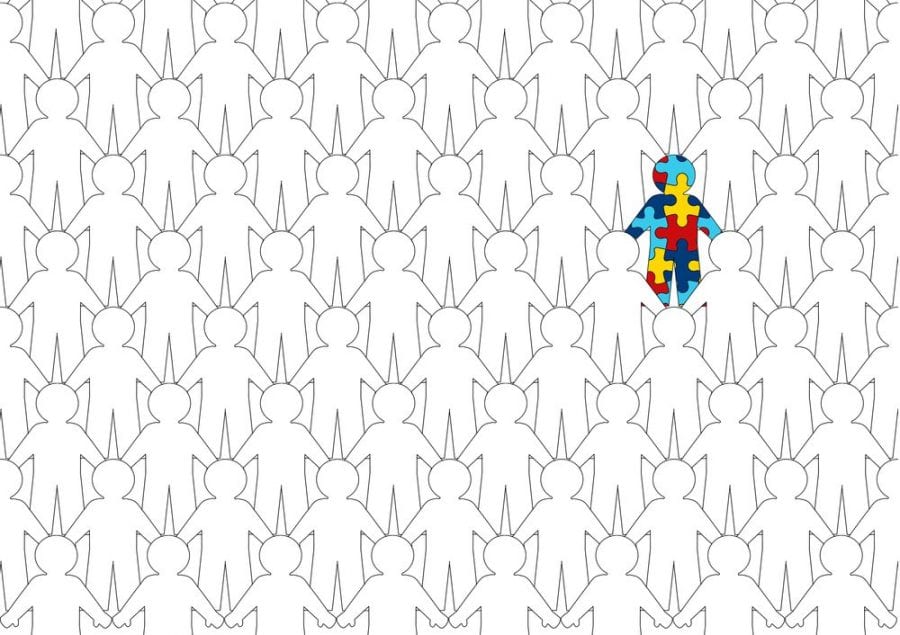An Israeli medical cannabis firm has completed an autism clinical trial with CBD-rich Avidekel cannabis oil. The results are promising
Media images of sick children taking cannabis oil brought medical cannabis to the mainstream. Often, the most extreme cases made the biggest impacts —people like Charlotte Figi, Alyssa Erwin, Haleigh Cox. Most families will never endure the trials of caring for a child with Dravet syndrome, brain cancer, or cerebral palsy. But one condition that could hit close to home is autism. Fortunately, the Avidekel chemovar by Tikun Olam is proven to be effective in treating symptoms of autism in recent clinical trial.

What do Autistic Patients Experience?
Autism is a neurodevelopmental disorder that usually first appears in childhood. It’s marked by difficulties with communication, misinterpreting social cues, an unusual focus on specific interests, repetitive behavior, and outbursts known as “the rage.” Currently, medical professionals treat autism as a range of distinct, but related conditions rather than a single diagnosis. Some autistic individuals may be unable to communicate or function at all. While others with milder forms, such as Asperger’s syndrome, may excel at the workplace while still encountering difficulties with communication or maintaining relationships.
How many people live with autism? We’re not sure. U.S. government tallies estimate anywhere between one in forty to one in fifty nine people qualify as autistic. Worldwide estimates put the number at around twenty five million people, although some experts suspect fifty percent of all autism cases go undiagnosed or undetected.
Avidekel Chemovar by Tikun Olam
Earlier this month, the Israeli medical cannabis firm, Tikun Olam released the results of an ongoing study with autistic children and a plant the company dubbed Avidekel.
According to the study, published in Scientific Reports (2019), ninety percent of patients showed improvement of symptoms after taking the oil for at least six months. Of those patients, thirty percent reported “significant improvement” while fifty three percent reported “moderate improvement.” Only 8.6 percent of patients reported no improvement.
“Autism is a leading condition of concern worldwide, so this study couldn’t have come at a better time,” said Dr. Annabelle Manalo, PhD, Tikun Olam’s science director, in a press release. “The data shows that autism patients can improve their overall quality of life utilizing a (CBD-rich) strain, and most importantly, that young users can safely and effectively benefit from medical cannabis.”

Dr. Annabelle Manalo
Avidekel has High Success Rate for Autism Treatment
Out of the one hundred and seventy nine patients who participated in the study, only twenty three patients reported undesirable side effects. The most common side effects included restlessness, drowsiness, and increased appetite.
Success rates differed according to the patient. Of those taking antipsychotics, twenty patients decreased the amount of non-cannabis pharmaceuticals they took (antipsychotics, antidepressants, hypnotics, sedatives). Eleven patients stopped taking the other medications altogether.
Autism sometimes shares comorbidity with epilepsy, and twenty three (fourteen percent) patients had epileptic disorders. According to the study, after six months of Avidekel treatment, eleven of these patients showed improvement in seizure occurrence, and two patients stopped experiencing seizures.
Currently, no medication exists solely to treat autism. Doctors consider it incurable, although many autistic individuals do not consider their condition a disease that requires curing. Regardless, psychological therapies serve as the most common method for treating autism, along with pharmaceuticals like antipsychotics and mood stabilizers. Unlike cannabis, these drugs often come with a slurry of side effects, including but not limited to shakiness, constipation, mood swings, or an increased risk of diabetes.

Some Participants saw Additional Improvement With Added THC
According to its pending patent, Avidekel produces a relatively high amount of CBD (16.3 percent by dry weight) and an incredibly small amount of THC (0.8 percent by dry weight). The typical oil employed in Tikun Olam’s study contained thirty percent CBD and 1.5 percent THC dissolved in olive oil. Patients or their parents titrated the doses on a case-by-case basis.
Some patients, such as those with sleep issues or aggressive behavior, received an added three percent THC oil.
The inclusion of THC to the treatment regimen may account for Avidekel’s success. CBD possesses a higher affinity – or “stickiness” – to CB2 receptors and protein signaling channels found most abundantly on immune cells. THC, on the other hand, possesses a higher affinity for CB1 receptors. Which are most concentrated on nerve cells in the brain and in the spinal cord.
Avidekel Had no Issues With Building Tolerance
CBD is accepted as a treatment for neurological conditions such as seizure disorders and autism. Still, patients may develop a tolerance to pure CBD, requiring greater amounts over time to achieve the same results. However, combining CBD with small amounts of THC appears to resolve tolerance issues — as seen in this study. This full spectrum medicine lowers the risk of building tolerance by accessing the Entourage Effect.
In an email to RxLeaf, Manalo noted that patients took well to the CBD-to-THC combination. “Patients did not undergo any medication tolerances,” she wrote. “As we followed these patients for 2 years, the treatment became more beneficial over time in a majority of children.”
Tikun Olam’s team speculates that other compounds besides CBD and THC may be involved, too. CBG, CBN, CBC, and CBDV were also detected in the oils, though at relatively low amounts (from less than 1.5 percent to less than 0.5 percent). The most prominent terpenes found in Avidekel include beta-myrcene, alpha-pinene, limonene, and beta-pinene, according to Manalo.

Israel: Leagues Ahead of the World in Cannabis Research
As medical science gets better at recognizing autism, the pharmaceutical technologies for treating the condition must improve at the same pace. As researchers struggle to design drugs for autism, the most effective and safe one may be stuck under severe legal restrictions and social stigmatization.
Israel, where Tikun Olam is based, could be considered the world leader in medical cannabis research. The Israeli government directly funds research, and government medical programs often coordinate with universities and private companies to develop and dispense cannabis-based medications.
Will Canada and the U.S. catch up soon? Let’s hope so, because for patients and their families, time isn’t something they can spare.






Julie Robinson
Thank you so much for this